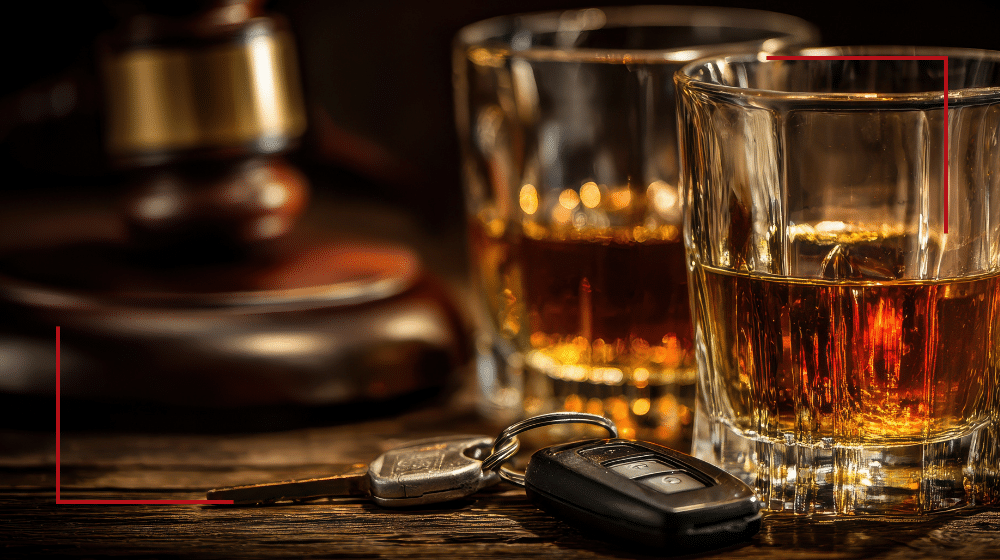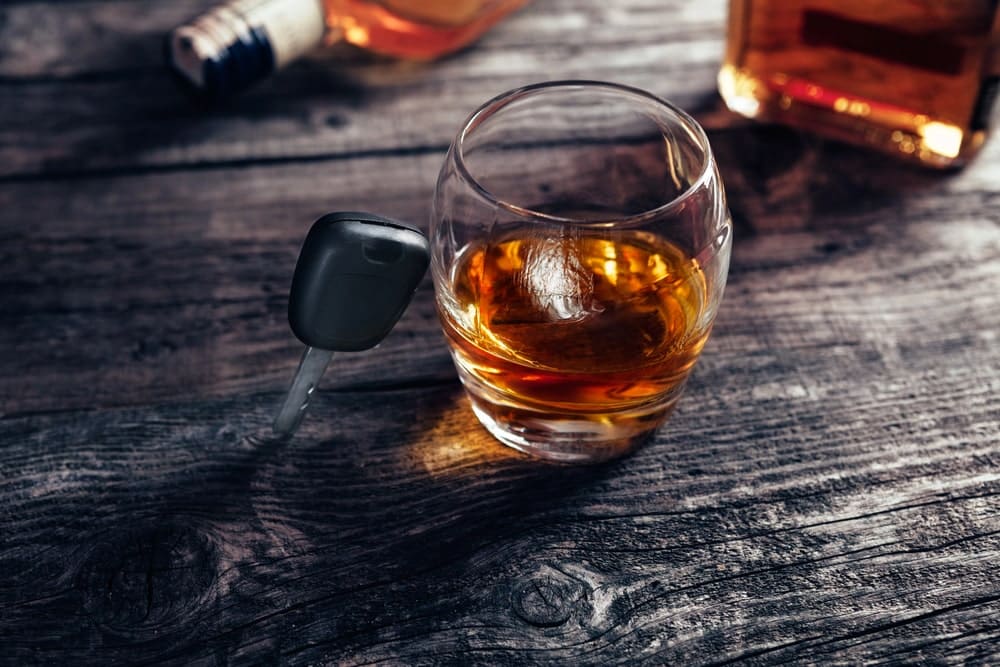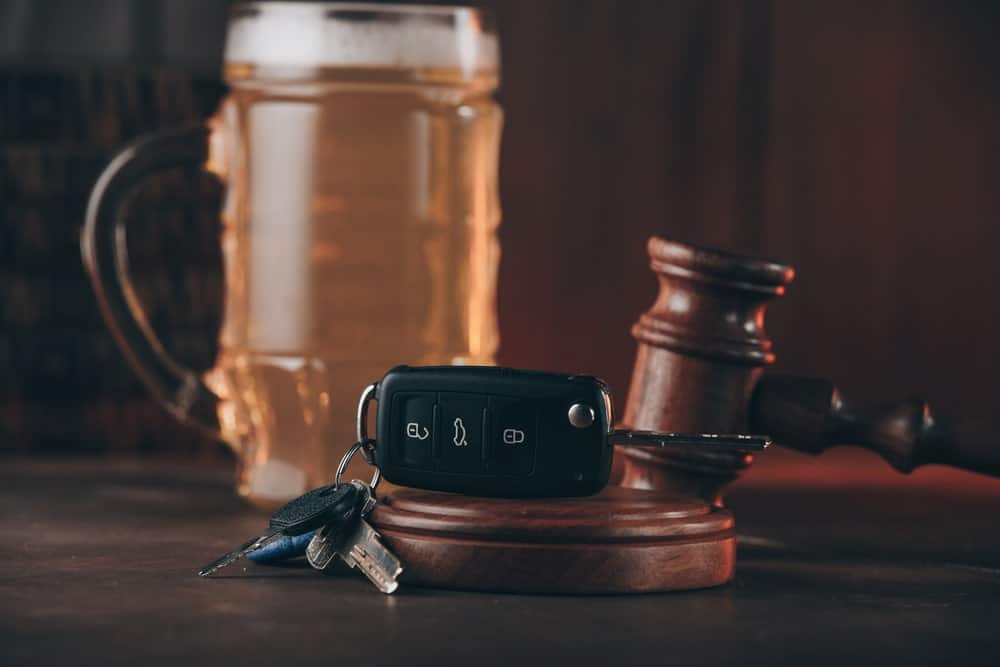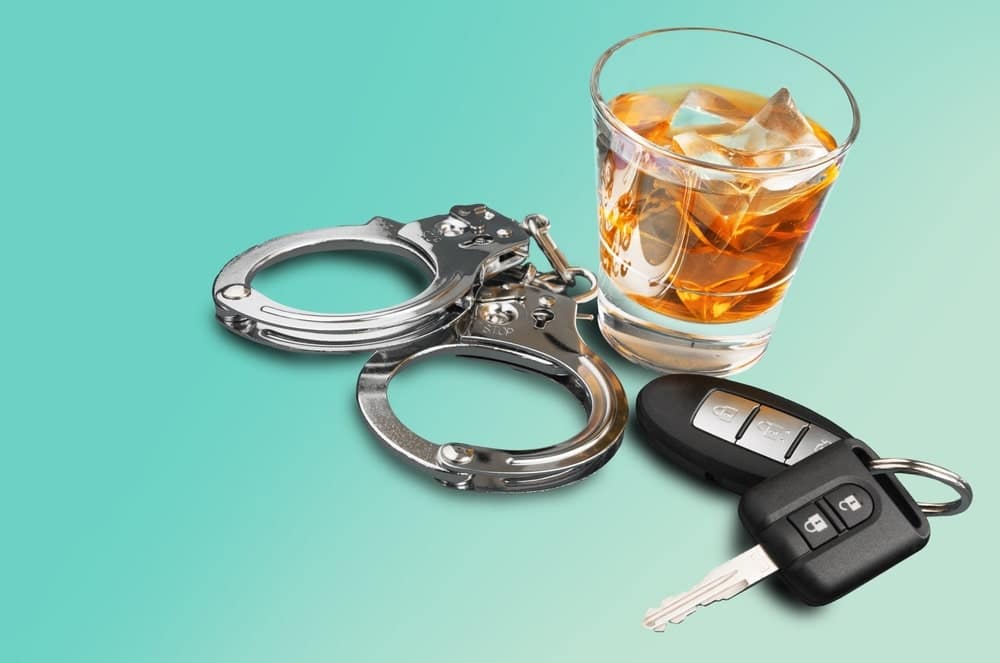Probable Cause VS Articulable Suspicion
If police need to have probable cause to even start searching for evidence of a crime, what factors come into play in order for them to pull you over for operating under the influence (OUI)?
In some cases, it’s pretty clear that a police officer has probable cause to believe a crime has been committed when he or she observes a person driving drunk and later, conducts an OUI investigation that includes field sobriety testing.
If an officer watches someone stumble out of a bar and take several minutes to key into their car before turning it on, not many will doubt that the officer had probable cause to believe that the driver was attempting to operate his vehicle under the influence for the purpose of arrest.
Call 207-571-8146 or contact us online to schedule a consult with one of our highly skilled criminal defense & OUI, DUI, DWI lawyers, serving Maine, today.
Table of Contents
What is Reasonable Articulable Suspicion in Maine?
In Maine, “reasonable articulable suspicion” refers to the legal standard that allows a police officer to stop and briefly detain a person if the officer has a reasonable belief, based on specific and clear facts, that the person has committed or is about to commit a crime.
Unlike probable cause, which is a higher standard required for searches and arrests, reasonable articulable suspicion requires less evidence but must still be based on objective observations. This standard ensures that police stops are justified and not based on mere hunches or arbitrary decisions.
What is probable Cause in Maine?
In Maine, probable cause is the standard that gives the officer grounds to effectuate an arrest. On the other hand, reasonable articulable suspicion is the standard that allows an officer to stop a car and/or expand the scope of the investigation into a full-fledged DUI investigation.
The basis for the officer’s suspicion must be both reasonable and articulable and cannot be based on a mere hunch or guess work.
Factors that lead to reasonable articulable suspicion in Maine
The cops do not have to wait for you to commit a major crime before stopping your automobile. If the cops have reasonable articulable suspicion that you committed any type of traffic infraction, from speeding to driving with a broken tail light, they are lawfully permitted to pull you over to investigate.
The following are some of the most common factors that provide reasonable articulate grounds for suspicion.
Speeding
Enforcing criminal speeding rules is a major aspect of most cops’ duties. If the police notice you driving more than one mile above the speed limit, they have the right to pull you over.
Running a Stop Sign
At intersections, traffic laws and automobile accidents are quite common. An officer who detects you rolling through a stop sign or failing to obey a traffic signal may lawfully stop you.
Mechanical Issues
There are several formalities to follow when it comes to keeping your automobile in tip-top shape. A police officer may issue you a citation if your car does not have the required equipment as mandated by law. Broken taillights, missing license plates, or nonfunctioning headlights are all examples of this.
Driving the Wrong Way
Many city and town regulations prohibit driving in the incorrect direction down one-way streets, so doing so is against both state and local laws. Given the potential risks, authorities have the authority to stop a motorist heading the wrong way.
Scene of an Accident
When police respond to the scene of a traffic accident where serious injury or death have occurred, they will often evaluate all drivers for signs of intoxication. In fact, in cases of serious bodily injury or death, the driver will be forced to submit to a blood draw in order to determine if he or she was under the influence of alcohol. Even if you are the victim of an accident, you could still face OUI charges if you are found to have been impaired by drugs or alcohol at the time of a car accident.
Sobriety Checkpoints
DUI stops can also be made at random checkpoints. Checkpoints are legal under the federal Constitution. Police set up a roadblock and randomly check the BAC of drivers as they pass through. Checkpoints are a legal way to stop drivers, but only if certain protocol are followed. Police officers cannot simply decide to start stopping vehicles in a certain area and they must prove that those stopped were at random. Checkpoints must stop all vehicles that come through and must keep the stops brief. If you were stopped at an illegal checkpoint, your case may be dismissible. For more information about how to find out if the checkpoint where your DUI arrest took place was legal, contact an attorney.
If a car is observed by police approaching a checkpoint and then turning around or maneuvering in some way that implies the driver may be intentionally avoiding going through the checkpoint, the law says that this is probable cause for police to stop that vehicle. The idea is that the driver has something to hide and is attempting to avoid arrest. There are, however, many other reasons that a driver could be turning around.
Reasonable Articulable Case Study Example in Tennessee
Two cases from the Tennessee Supreme Court highlight the legal significance of RAS. In one case, a driver crossed the fog line once, and touched it two more times with both of her passenger-side tires. A cop pulled her over, and during the traffic stop found that the driver was intoxicated.
Similarly, in the other case, the driver crossed the center line once, got pulled over, and was arrested for drunk driving. All of the evidence used to convict the two drivers came during the traffic stop. If the police officer didn’t have enough reasonable articulable suspicion to pull the driver over, the traffic stop never would have happened, the evidence of their OUI would never have been gathered, and neither driver would have been convicted.
However, the Supreme Court of Tennessee decided that this small amount of swerving had been enough to give the officers RAS to pull the drivers over, and agreed that their conviction should stand.
Think about that. When’s the last time you were driving and your wheels touched one of the lines?
It probably wasn’t too long ago, because that sort of thing happens pretty frequently, even to the best of drivers. Now imagine being pulled over by the police and told to take a breathalyzer test every time your wheels crossed a line on the road. This is how traffic stops happen, now, in Tennessee and all across the country.
Fighting OUI Charges After an Unlawful Stop in Maine
If you’re facing an OUI charge in Maine, and the police officer pulled you over for something as common as touching a lane marker with your tire, challenging your charge in court is hugely important. If you can show that the police officer did not have a reasonable articulable suspicion to pull you over and that the search that gathered all the evidence against you was unconstitutional, your case should be dismissed.
Hiring a quality OUI DUI defense lawyers to help you in court is the best way to fight against your OUI charges. Call The Maine Criminal Defense Group today at (207) 571-8146 or contact us directly online.
Call 207-571-8146 or contact us online to schedule a consult with one of our highly skilled criminal defense & OUI, DUI, DWI lawyers, serving Maine, today.
Related Articles

OUI, DUI, or DWI cases are often based on the results from approved screening devices, commonly referred to as “breathalyzers”. The question of whether these breath tests are accurate has[...]

The Maine Liquor Liability Act (MLLA) provides for the recovery of damages against anyone who negligently or recklessly “serves” alcohol to a minor. However, that might be just the start[...]

A conviction for an OUI, DUI, DWI in Maine is accompanied by serious consequences, including heavy financial repercussions. Understanding the court-imposed fines is one thing, but the financial consequences can[...]

OUI cases in Maine usually start when a law enforcement officer pulls over a vehicle. From that point, many things can happen but if the officer even has a slight[...]

January 11th, 2025, in Skowhegan, Maine, a Maine Department of Transportation plow truck sustained a head-on collision caused by a drunk driver on Route 2, as reported by law enforcement.[...]

The tragic events of a fatal car crash in 2023 that claimed the lives of four young people have finally reached a pivotal legal outcome. Noelle Tavares, a former Maine[...]

In most states, there are many different places that the average person can take a driving course to satisfy court requirements as related to an DUI conviction. However, in the[...]

Defending against OUI offenses in Southern Maine Anyone charged with a 2nd OUI in Maine should expect little leniency from the criminal justice system. This makes it even more important[...]

Defending against OUI Refusals in Southern Maine Did you know that it is a criminal offense to refuse to submit to a chemical test if lawfully requested to do so[...]

Reducing an OUI charge in Maine OUI charges are handled severely in Maine. For many people, a drunk-driving charge is their first time dealing with the criminal justice system and,[...]
